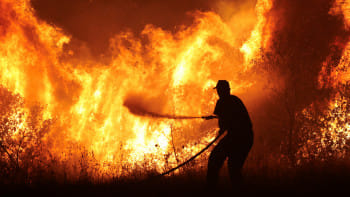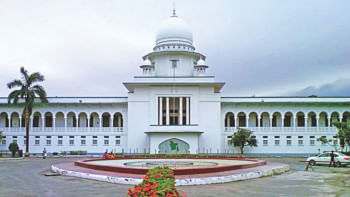What our new climate envoy can do for Bangladesh

Last month the PM Sheikh Hasina appointed Saber Hossain Chowdhury, member of parliament, as her climate envoy. This is excellent news as many countries have climate envoys and Bangladesh could really use one too.
Climate change has become a part of daily life and climate-relevant international meetings are being held around the world every week. This is where the climate envoy can step in. While the Minister of Environment, Forest and Climate Change leads the Bangladesh delegation to the annual Conference of Parties (COP) of the United Nations Framework Convention on Climate Change (UNFCCC), this event is not the only important one anymore when it comes to taking global-level decisions on climate change. The government needs a full-time climate envoy to represent the country at many relevant events.
For example, soon after he was named climate envoy, Chowdhury headed to Paris, France to attend a major climate finance summit. There, I had the good fortune of joining our climate envoy during a number of the events. Before the COP28, to be held in Dubai in December, there will be the NYC Climate Week, which the MP Chowdhury will need to attend.
In addition to his role at the global level, Chowdhury is also the chair of the parliamentary standing committee on the Ministry of Environment, Forest and Climate Change (MOEFCC), from which capacity he successfully passed a unanimous parliamentary resolution declaring a "planetary emergency" a few years ago. He is also in a position to provide guidance to the different ministries and agencies involved in tackling climate change in Bangladesh.
I would like to take this opportunity to offer him some advice and also my strong support for his endeavours on behalf of Bangladesh and the LDC Group at COP.
The first order of business I would recommend for him is to convene all the relevant ministries and agencies, including MOEFCC, the planning ministry, the foreign ministry, and the finance ministry to ensure that they work with each other in a whole-of-government manner. This can focus on comparing and mapping the different activities across our climate change plans, such as the National Adaptation Plan, the Nationally Determined Contributions, the Mujib Climate Prosperity Plan, and the Delta Plan so that any duplication of efforts can be avoided and synergies synced. This process would also allow devising a prioritisation plan for short-, medium- and long-term projects.
The second aspect for the climate envoy to focus on would be to enhance our access to global funds, such as the Green Climate Fund, the Adaptation Fund, and future Loss and Damage Funds. This needs a more concerted and focused effort, engaging the most relevant Bangladeshi experts to submit well-thought-out funding proposals to the global funds.
The third issue MP Chowdhury should focus on is improving the Monitoring, Evaluation, and Learning (MEL) of existing national climate change funds, including the Bangladesh Climate Change Trust Fund, the annual climate budget, and even donor funds. Unless it can be proven that we were able to extract credible, positive results from the funds we received in the past, it will be difficult for Bangladesh to attract more climate funds in the future.
Finally, our new climate envoy should opt for a whole-of-society approach in changing the brand of Bangladesh, from that of a vulnerable country to one that is resilient. Our expertise in terms of climate change should also be brought to light. As part of foreign policy work, we can start sharing our knowledge with other countries. Ultimately, Bangladesh should be branded as a global leader when it comes to tackling climate change.
Dr Saleemul Huq is director of the International Centre for Climate Change and Development and a professor at Independent University, Bangladesh.

 For all latest news, follow The Daily Star's Google News channel.
For all latest news, follow The Daily Star's Google News channel. 











Comments